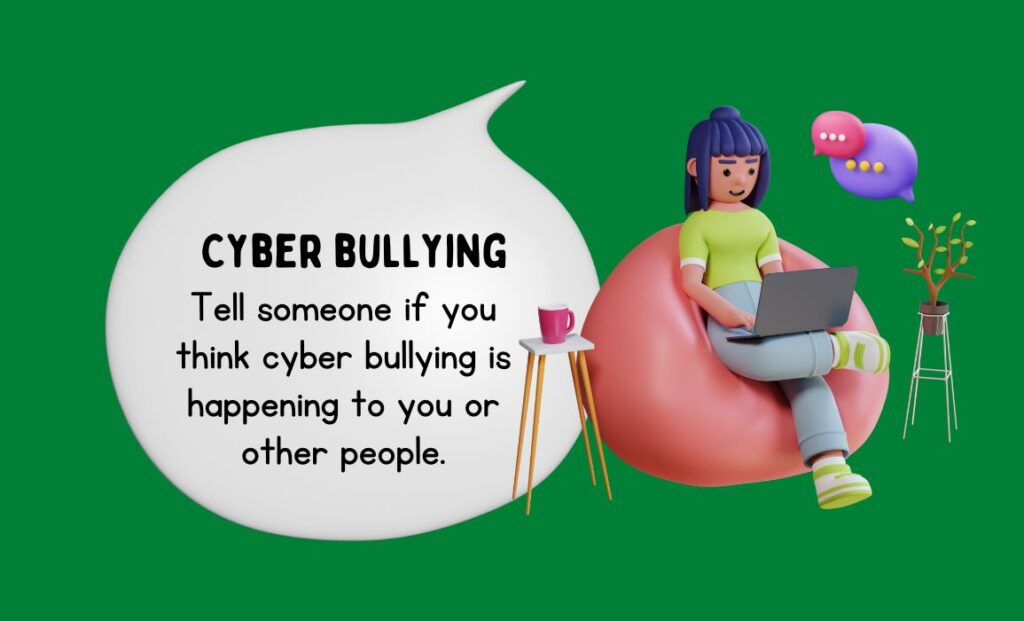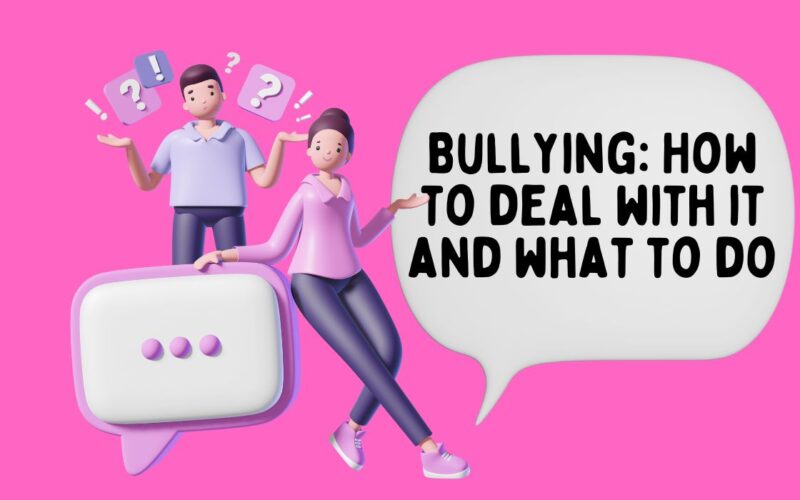Being bullied is never a pleasant experience. But it’s even worse when you’re not sure what to do about it. When I was in high school, I was bullied by a group of girls in my class. They made fun of my clothes and called me names in front of other students. It was hard to deal with because they were friends with most people at school and no one else seemed to care that they were being mean to me all the time. So what can you do if you’re being bullied? Below is a guide to help to deal with bullying:
Tell someone
If you are being bullied, it is important to tell someone. You can do this by telling a trusted adult or friend. You can also talk with a sibling, parent, or teacher about the bullying if you are feeling comfortable doing so. If not, there are counselors at school who will help you cope with being bullied, and let them know how they can help you!

Tell the school
If you’re being bullied, tell someone. Tell the school.
- Tell a teacher, principal, or counselor. They are there to help students and can help stop bullying before it gets out of hand.
- Tell your parents. If you’re not comfortable talking about it with an adult in person, try writing down what happened and giving them the note when they get home from work so they know what’s going on without having to ask directly (or vice versa). They’ll want to know if something like this is happening to their child!
- Tell someone else who cares about you–a friend or relative who will listen without judging and help figure out how best to deal with the situation at hand together as equals rather than one person telling another what “needs” done without asking permission first (which would make most people feel very uncomfortable).
Cyberbullying
Cyberbullying is a form of bullying that happens online or through technology. It can look like this:

- Sending mean messages on social media, like Facebook or Instagram.
- Posting hurtful comments about someone on a blog or website where other people can see them.
- Spreading rumors about someone through email and text messages (also called “sexting”).
Click here for more information on cyberbullying.
If you’re being cyberbullied, it’s important to know that the person doing it doesn’t have any right to make fun of you or hurt your feelings in this way–and they might get into trouble if they do! If you think someone is cyberbullying you, talk with an adult right away so they can help figure out what happened and how best to deal with it moving forward.
What parents can do
You can help your child by talking about bullying and what it means. You can also support them by letting them know that you’re there for them, no matter what happens.
If your child is being bullied:
- Tell an adult at school immediately. Make sure to tell the principal or head teacher, who will then make sure that the incident is dealt with properly. If it’s not safe for your child to go back to class until things have been resolved, ask if there are other options available like home tutoring or online classes so that they’re not missing out on their education unnecessarily (or worse still, falling behind).
- Don’t ignore any threats made against them – if someone threatens violence or harm against another person then this should always be reported as soon as possible so that appropriate action may be taken against those involved in making such threats.*
How to react to a bully
When you are being bullied, it can be tempting to react at the moment. You may want to fight back or give some snarky response. But this is not the best way to handle a bully. Here’s why:
- You will lose any respect you have for yourself if you stoop down to their level. It doesn’t matter how much they make fun of your clothes or call names; what matters is that they are trying to hurt your feelings and make life harder than it needs to be for everyone involved (including themselves). When someone bullies another person, they’re showing their weakness as well as making themselves look bad in front of others who might not agree with them but still feel bad about themselves because they think everyone around them thinks less highly about them than those who were targeted by bullies do themselves! So don’t let yourself become part of this cycle–stand up against injustice wherever possible!
- Don’t try aligning yourself with those who would otherwise shun society’s “losers” just because those people happen
Avoid being bullied
- Avoid being bullied.
- Don’t be alone.
- Don’t be afraid to talk to someone, even if you think they won’t help or care.
- Don’t be afraid to tell your parents, teachers, and/or other adults at school what’s happening so that they can take action against the bully(s). You can also report bullying incidents directly through an email address or phone number provided by your school district or local police department on their website pages (see links below).
Bullying is wrong and you shouldn’t be bullied
You should never be bullied. Bullying is wrong, and you should tell someone if you are being bullied. If you don’t want to tell your parents, then tell a teacher or another adult at school who can help you.
Bullying is when someone teases or makes fun of another person because they’re different from them in some way (for example race, religion, or gender). Cyberbullying happens online through social media sites like Facebook, Instagram, and Snapchat – it could be as simple as sending nasty messages but it can also include blackmailing/harassing people online which could lead up to criminal charges for those involved!
Parents can help by talking about what happens at school with their children so they know what’s going on and how best not to get themselves into trouble too easily by simply sharing information about where exactly the line between acceptable behavior lies (i..e don’t post anything offensive because someone else might take offense).
If you’re being bullied, it’s important to know that there are people who can help. You don’t have to go through this alone! Tell someone – whether it’s a parent, teacher, or counselor – so they can help stop the bullying from happening again. It might feel awkward at first but trust me when I say that once you tell someone about how others are treating you badly, things will get better for everyone involved.












